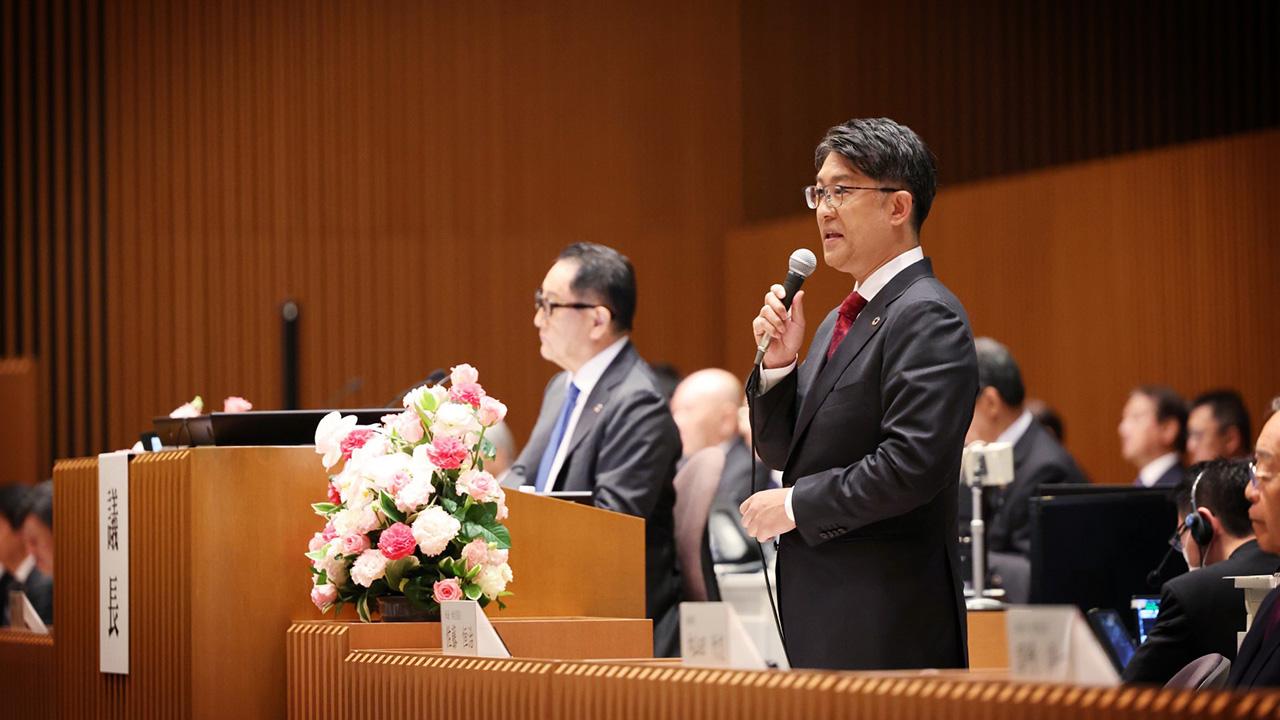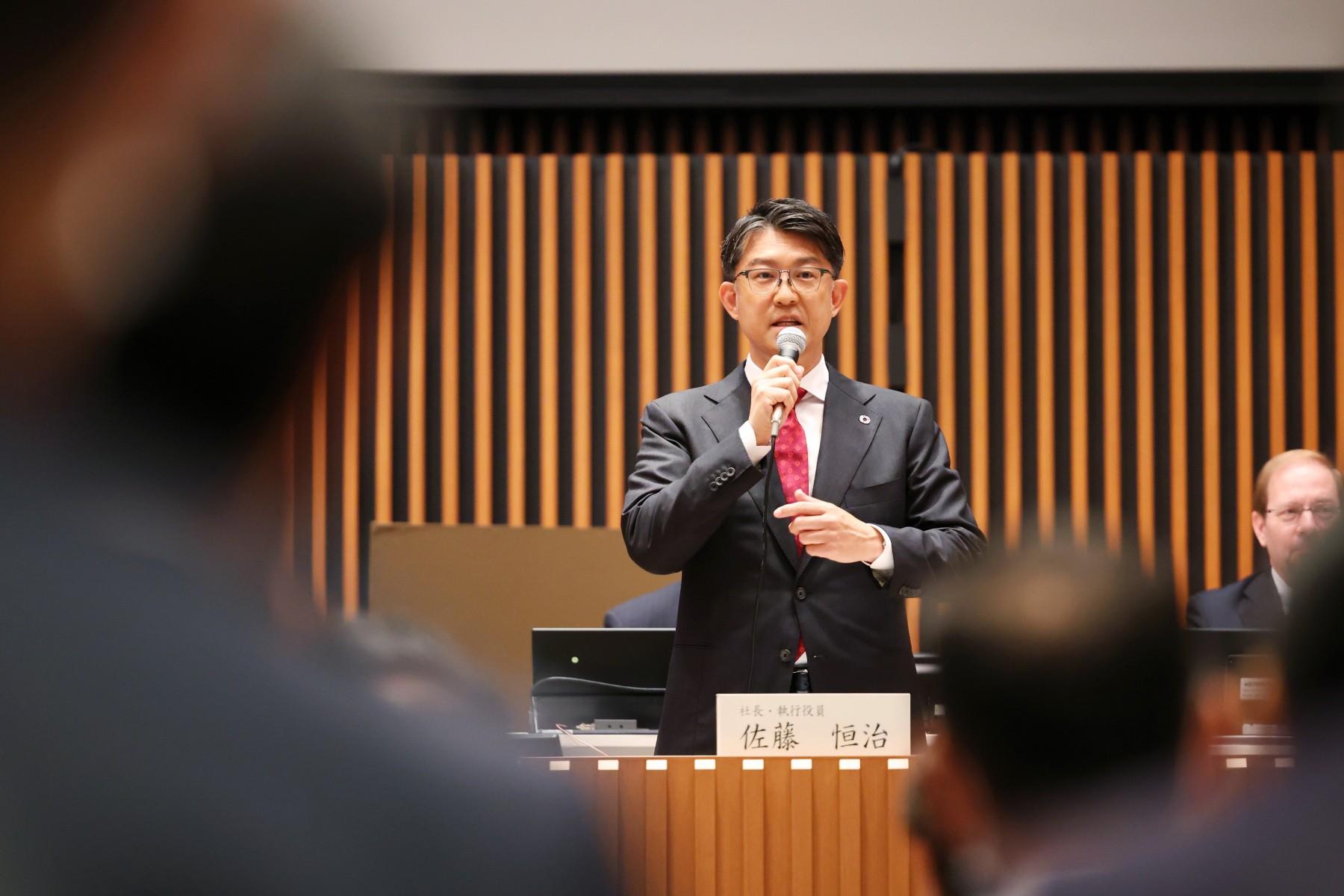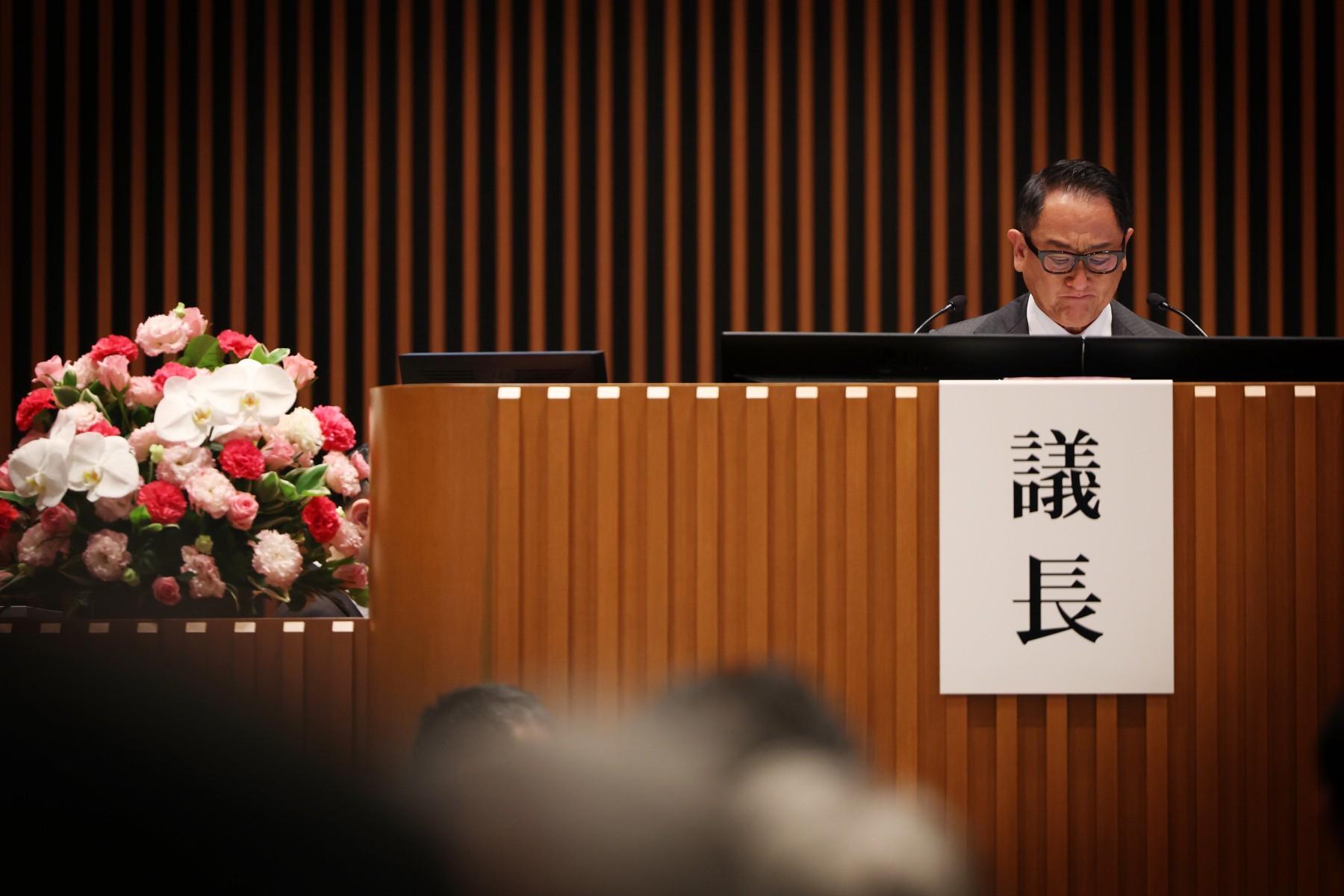
"Being president of Toyota is lonely." President Koji Sato received this piece of advice from Chairman Akio Toyoda when he was offered the position. What has Toyota's new leadership team inherited?
Inheriting and building on Akio’s work
Given that President Sato’s new team has adopted the theme of “Inheritance and Evolution,” a shareholder asked the president what he planned to inherit, and what he wanted to change.
“I would love to know that myself,” Akio commented with a smile before giving the floor to President Sato.
President Sato

Personally, I’ve spent more than ten years under Akio Toyoda as both Morizo and master driver, observing his approach to carmaking from the genba.
With an unwavering dedication to making ever-better cars, we have continued to focus on the genba, where we poured our energies directly into creating vehicles.
And now, I am pursuing exactly the same style of carmaking—together in the genba, striving hard to create good cars.
As I see it, a car should convey the vision of its creators to customers, drivers, and users.
I believe this is one of the firm values that Akio Toyoda has instilled at Toyota over the past 14 years. Together with the rest of the executive team, I am determined to carry it forward.
At the same time, the society in which cars exist is undergoing profound changes.
To ensure that our love for cars has a future, we must solve many more problems and develop cars that are adapted to the systems of society.
This is what we mean by seeking to become a mobility company.
I believe the future of cars lies in adding greater value through closer integration with society’s systems, information, logistics, and various other areas that move people.
When we talk about “changing the future of cars,” it is because we are certain that as carmakers we can create new value.
By fulfilling increasingly diverse needs, including through intelligence and electrification, cars will become mobility. Having taken over the running of the company, I see it as our duty to spur this evolution.
The challenge we’re undertaking is to create something new for the future of cars, while also preserving the car’s intrinsic value. I consider this our mission.
Summing up 14 years of adversity
The next question was about Akio’s 14 years as president.
Expressing appreciation that Toyota’s market capitalization had roughly tripled over this period, a shareholder asked the president to explain how it had felt to steer the company through 14 years of headwinds.
Akio Toyoda revealed his thoughts on both a professional and personal level.
For me, these 14 years were “a fight to bring back what makes us Toyota.”
To put it another way, this was a struggle to restore the genba as Toyota’s center of authority.
Before I became president, Toyota was highly bureaucratic, with authority in the hands of those who held certain titles. Decisions were made at head office desks, not the genba.
Ever since joining the company, I couldn’t help but question whether Toyota had always been this way. I think it stemmed from the corporate culture that had taken root in the vast organization.
Looking back, since birth I have always been in the minority. Born into the founding family, I spent my life not being seen for the person I am, always carrying the associations that come with the Toyoda name.
When I joined Toyota, my father the late Honorary Chairman (Shoichiro Toyoda) told me, “No one in the company will want you working under them.” I soon found that he was completely right.
Anyone who got close to me was seen as trying to gain favor with the president’s son. Few were prepared to be firm with me, in case word got around to my father.
Before I knew it, I had become someone that people did not want to get involved with—an untouchable, so to speak.
I lost heart many times, and more than once considered quitting. And yet, I feel the experience taught me two skills.
The first is being a good listener. As an untouchable, the environment certainly did not allow me to assert myself.
This instilled a habit of listening to other people’s opinions.
The second is to base decisions on what I see as the essence of Toyota and create stories to explain this.
Among my earliest memories are the stories told by my father, the Honorary Chairman. I had many chances to ride in cars with him and meet the people working at Toyota.
Growing up with this exposure to Toyota, I feel that I developed my own sense of the company’s character.
I listen to people carefully and base each decision on what I believe makes us Toyota—does this suit Toyota, does it fit Toyota’s philosophy?
I then share these as stories in words that reach and resonate with many people.
These are the skills I mastered through living as a minority, and they gave rise to the words “Let’s make ever-better cars,” “Let’s aim to be best-in-town,” and “Let's work for someone other than ourselves.”
My words and actions resonated most with people in the genba.

It is only thanks to individual genba workers acting on their own initiative that our products, and Toyota, were transformed. In today’s Toyota, authority rests in a genba that thinks and acts for itself.
We cannot change other people or the past, but we can change ourselves and the future. It was with this mindset that I spent 14 years fighting for the genba.

